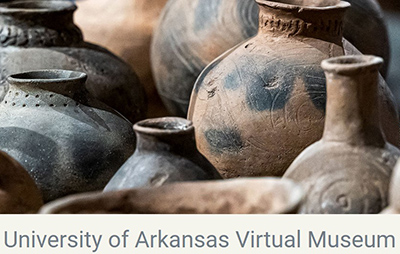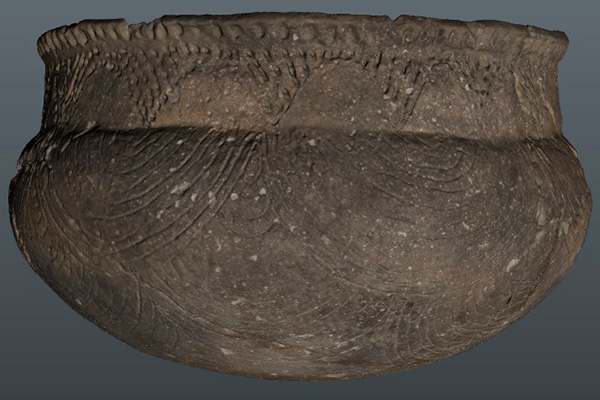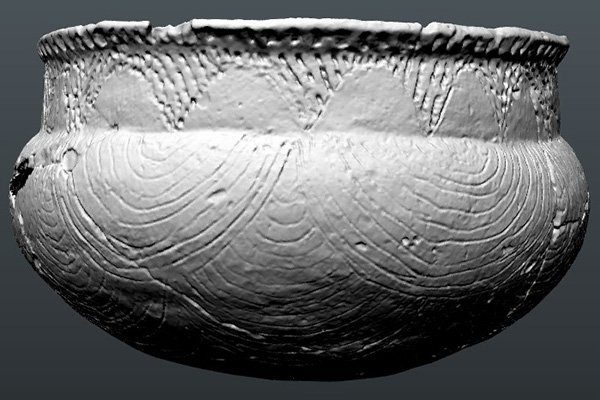Teka McGlothlin, Madelyn Rose, Sarah Shepard

To make our collections more accessible to researchers and the general public, the Arkansas Archeological Survey is working to create a virtual museum using 3D scanning technology. This ongoing project will give visitors more active access to artifacts virtually from anywhere using a computer or mobile device. The virtual online museum seeks to create a space where artifacts from both the Arkansas Archeological Survey and University of Arkansas Museum collections can be displayed, shared, and studied across multiple venues. In addition to archeological artifacts, we will be incorporating collections covering art, material culture, ethnography, geology, paleontology, and zoology.
One of the benefits to an online virtual museum is that it allows researchers to study and manipulate archeological artifacts remotely, but also preserves and protects the original, often fragile, objects from potential damage via handling or relocation. Another benefit is that it allows viewing from multiple locations for use in online studies or classroom settings. The 3D scanning technology allows us to mimic and even enhance the traditional in-person museum experience.
With the viewpoints available from 3D scans, users can examine objects and focus on specific attributes by removing textures (i.e., finish, color, etc.); minor decorations or engravings that were once hidden become visible or more distinct when the color or wear from handling are removed, as can be seen in the attached images. Additionally, the software allows users to rotate, enlarge or reduce in size, and accurately measure artifacts and their attributes. Users can also adjust the lighting to highlight different features. See the scanning process in action.
Other uses and past examples can be viewed in our prior posts available at the following links:
Advancing Archeology with 3D Technology
Interpreting the Hodges Collection of Native American Artifacts
Resting Warrior Figurine
The University of Arkansas Museum and the Archeological Survey collections house a multitude of artifacts from many different cultures. Hopefully this space will also provide an opportunity to compare various objects spanning global regions and timeframes. New items will continue be uploaded to the online collections going forward, so be sure to keep checking in.
The University of Arkansas Virtual Museum can be found at:


